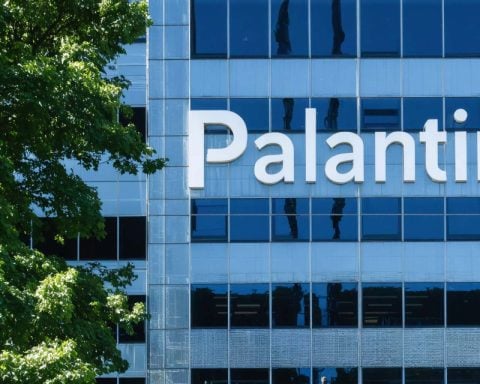Bosch is leaping forward in semiconductor manufacturing with a groundbreaking project in Roseville, California. Under a new agreement supported by the U.S. Department of Commerce through the CHIPS and Science Act, Bosch is set to receive up to $225 million in funding to transform its Roseville production facility.
This ambitious venture involves a staggering investment of $1.9 billion, aimed at revolutionizing the site to produce state-of-the-art silicon carbide (SiC) semiconductors. These advanced chips are pivotal in enhancing the efficiency and range of electric vehicles. The Roseville site, with its long history in semiconductor production, currently employs about 250 personnel, whose numbers are expected to grow significantly.
Earlier this year, Bosch completed the acquisition of an existing wafer fab in Roseville. As part of its strategic plan, by 2026, the facility will begin producing chips on 200-millimeter wafers using Bosch’s innovative SiC technology. This move underscores Bosch’s commitment to bolstering its semiconductor capabilities in the U.S., which is a crucial step in securing domestic supply chains and supporting local customers.
Bosch is not just investing in infrastructure but also in the local community. The company has provided significant training for its workforce and granted $100,000 to the Sierra College Foundation to enhance technical education.
With further incentives like the California Competes Tax Credit and the CHIPS ITC, Bosch is poised to reshape the semiconductor landscape in the U.S., paving the way for future technological advancements.
Bosch’s Bold Move in Silicon Valley: The Future of Semiconductors
Bosch is making significant strides in semiconductor manufacturing with a transformative project in Roseville, California, backed by the CHIPS and Science Act. Receiving up to $225 million in funding from the U.S. Department of Commerce, Bosch is poised to revolutionize the semiconductor landscape.
How Bosch’s $1.9 Billion Investment Transforms the Industry
This bold $1.9 billion investment focuses on creating cutting-edge silicon carbide (SiC) semiconductors, which are crucial for enhancing electric vehicle efficiency and range. By 2026, Bosch plans to produce chips on 200-millimeter wafers at its newly acquired Roseville facility. This technological advancement not only strengthens Bosch’s U.S. semiconductor capabilities but also ensures the stability of domestic supply chains.
The Impact on Roseville and the Workforce
Currently employing around 250 people, the Roseville site is set for significant growth. Bosch’s investment extends beyond infrastructure, emphasizing workforce training and community development. The company also donated $100,000 to the Sierra College Foundation, supporting local technical education initiatives to prepare the upcoming workforce for emerging industry demands.
Innovations Driving the Future
Bosch is leveraging its innovative SiC technology to set a new standard in the industry. Silicon carbide semiconductors are expected to play a pivotal role in future electric vehicles, contributing to longer ranges and faster charging times—key factors in the automotive industry’s evolution.
Incentives and Economic Impacts
Beyond the CHIPS Act funding, Bosch benefits from the California Competes Tax Credit and the CHIPS ITC. These incentives reinforce Bosch’s commitment to reshaping the U.S. semiconductor industry while fostering local economic development.
Predictions and Market Trends
Market analysts predict that Bosch’s bold move will encourage other semiconductor manufacturers to invest in the U.S., potentially leading to a reshaped, more competitive market landscape. With the growing demand for advanced semiconductors, Bosch leads the charge in driving innovation and sustainability in technology production.
For more information on Bosch’s initiatives and technological innovations, visit Bosch.



















